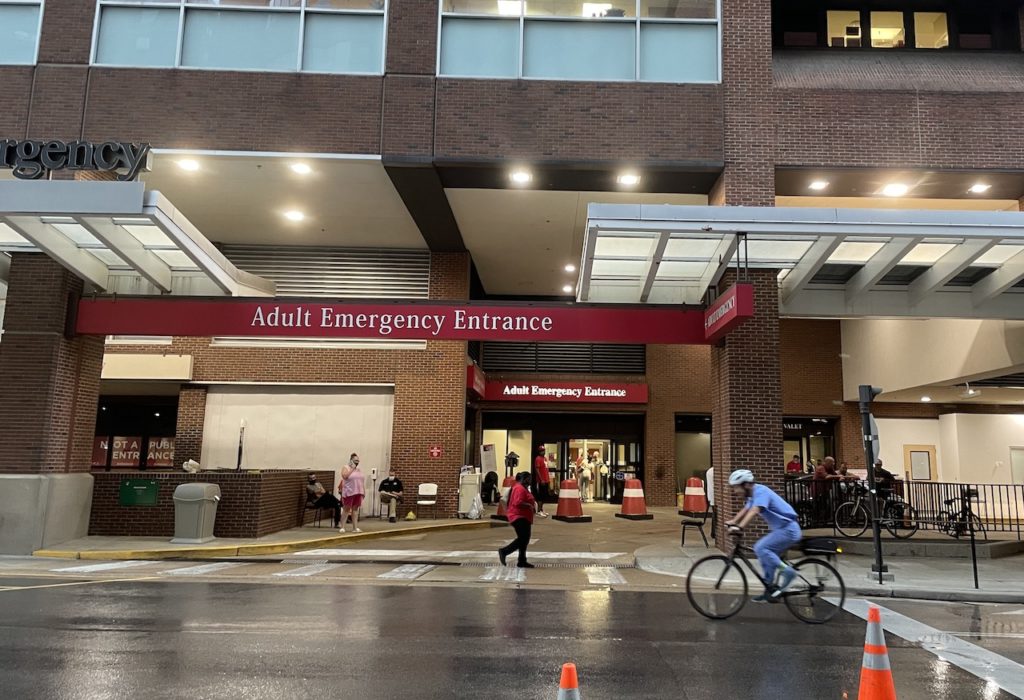
As COVID cases spike in Tennessee faster than ever before, hospitalizations are also surging — surpassing 2,000 statewide on Tuesday. But one of the state’s largest hospitals says the patient counts may be a little misleading due to a rising number of “incidental” cases.
As a general rule, Vanderbilt University Medical Center has been testing patients for COVID. And every once in a while, someone who was in a bad car wreck would test positive.
But the more contagious Omicron variant is so widespread at this point, according to executive medical director Dr. Tyler Barrett, about one in seven patients get a positive result. They may never get very sick, especially if they’re vaccinated, but they’re still exposing hospital staff.
“When you have someone you’ve been caring for for a couple of hours, then, after the fact, it comes back that they’re COVID positive, I think it’s sometimes a bit deflating for staff,” Barrett says.
Nurses who test positive still have to isolate for at least five days, which is why staffing remains a major concern, even if intensive care units aren’t nearing capacity.
Here are the weekly data showing hospitalizations for patients with #COVID19 in our hospitals. The #omicron #variant is impacting how we consider case counts & hospitalizations. Please read this important context about this week's report: https://t.co/QLF02FhP52 pic.twitter.com/n1MW3YjNOO
— Vanderbilt Health (@VUMChealth) January 3, 2022
A Vanderbilt spokesperson confirms the hospital reports all positive patients to the state database, which is updated daily here. But a spokesperson for the Tennessee Department of Health says hospitals have latitude on which patients to report into the official tally.
White House chief medical advisor Dr. Anthony Fauci described the growing phenomenon during an interview on MSNBC last week, noting that the incidental positives may also be inflating pediatric hospitalization numbers.
It’s unclear what percentage of Tennessee’s current hospitalizations are incidental. But so far intensive care units are not feeling the same crunch as during the height of the delta variant surge.
“We’re not seeing as many people as we did in terrible respiratory distress,” Barrett says. “But being an emergency medicine doc, where you always expect the worst, let’s take one day at a time and see what the next few weeks bring us.”

